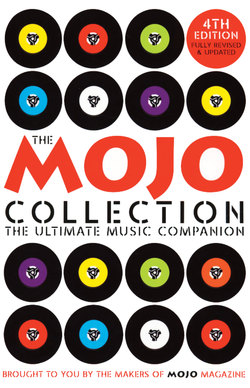Читать книгу The Mojo Collection - Various Mojo Magazine - Страница 124
На сайте Литреса книга снята с продажи.
Magic Sam West Side Soul The record that announced a new generation of American electric blues.
ОглавлениеRecord label: Delmark
Produced: Robert G Koester
Recorded: Sound Studios, Chicago; July 12 and October 25, 1967
Released: April 1968
Chart peaks: None (UK) None (US)
Personnel: Magic Sam Maghett (v, g); Mighty Joe Young (g); Stockholm Slim (p); Earnest Johnson (b); Odie Payne (d); Odie Payne III (d); Mack Thompson (b)
Track listing: That’s All I Need; I Need You So Bad; I Feel So Good (I Wanna Boogie); All Of Your Love; I Don’t Want No Woman; Sweet Home Chicago; I Found A New Love; Every Night And Every Day; Lookin’ Good; My Love Will Never Die; Mama Mama Talk To Your Daughter
Running time: 45.52
Current CD: Delmark DLM6152 adds: I Don’t Want No Woman (alternate take)
Further listening: Follow-up Black Magic (1969); Easy Baby (1990), a collection of his early sides reissued by Charly
Further reading: Living Blues magazine, issues 125 (January–February 1996) and 127 (May–June 1996); www.laze.net/magicsam/ (fan site)
Download: Not currently legally available
In the early 1960s, no fresh African-Americans were breaking out from the Chicago blues bars, and it seemed that the music might one day become a museum piece until a young entrepreneur named Robert Koester began a talent hunt for his small label. He found it. Samuel Maghett was young yet already an experienced performer, easy on the eye, a gentleman in his dealings, charismatic, an incredible guitarist with his own style, a dramatic singer and the author of some bruising blues songs. Sam had already recorded for Cobra in 1957, Chief in 1960–61 and Crash in 1966 when Delmark signed him, but this time around he was promised a free hand. Thus, on a sticky summer’s day, he entered a small Chicago studio to make blues history.
Sam knew to appeal to the young Caucasian college fan just discovering blues music as well as to his regular crowd: the album had to hang together musically, had to be of one piece like a rock album. Maghett lived on Chicago’s West Side where he and his cohorts were much more ready to embrace music beyond the blues – rock’n’roll, soul and Latin – than his contemporaries on the South Side, the Chess Records crowd who were blues purists. It was this distinction that gave the album its uptempo drive and its title.
Sam’s staccato lead guitar (he played with his fingers and thumb, forcefully plucking the strings) pushed through a Fender amp with reverb on full was a new sound in blues, and after West Side Soul’s release Sam briefly toured with The Grateful Dead, wowing Jerry Garcia when his Stratocaster was heard through a state-of-the-art PA system.
‘Looking Good, his show-stopping boogie, blew guitar players’ minds,’ remembers ex-manager Denny Bruce. ‘Ry Cooder came to my house to meet Sam and learn a few finger-picking tricks from him. Sam never showed him. He never got his due as a singer but his Mama Mama Talk To Your Daughter and Sweet Home Chicago are role models for so many out there.’
Alas, it was not to last. After two years of growing fame, Magic Sam Maghett called to his wife one morning complaining of heartburn. It was a cardiac arrest, and within minutes Sam was dead. He was 32.
